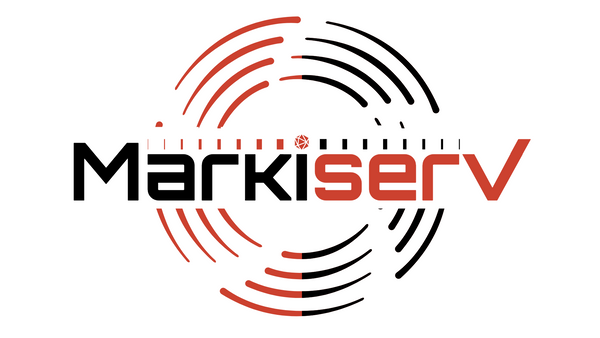
How Businesses Can Improve Their SEO Position on the Web
Share
Introduction
In today’s digital landscape, search engine optimization (SEO) remains one of the most powerful tools for businesses looking to increase their online visibility, drive organic traffic, and generate leads. With more companies investing in digital marketing than ever before, the competition to rank higher in search results is fierce. If your business isn’t appearing on the first page of Google, you’re likely missing out on potential customers who are actively searching for your products or services. 61% of B2B marketers stated that SEO and organic traffic generate more leads than any other marketing initiative.
But why is SEO so critical in 2025? Several factors have contributed to its growing importance:
The Rise of AI in Search Algorithms
Google’s algorithm is constantly evolving, and with the introduction of AI-driven search enhancements like Google’s Search Generative Experience (SGE) and Bing AI, ranking factors are becoming more sophisticated. Search engines are now prioritizing high-quality, user-focused content, making it crucial for businesses to optimize their websites accordingly.
Voice Search & Mobile-First Indexing
More than 60% of searches now come from mobile devices, and voice search is becoming increasingly popular. Businesses that optimize for mobile-friendly experiences and conversational keywords will have an advantage over competitors who fail to adapt.
The Power of Local SEO
Google is placing a stronger emphasis on local businesses, prioritizing location-based searches. If your business isn’t optimized for local SEO, you’re missing out on a highly targeted audience ready to convert.
Content Remains King
Content marketing continues to be the backbone of SEO. Businesses that invest in long-form, engaging, and informative content will rank higher and attract more inbound traffic than those relying solely on paid ads or outdated SEO tactics.
Technical SEO & Page Speed Matter More Than Ever
A slow website can kill your SEO efforts. Google’s Core Web Vitals and Page Experience metrics heavily influence rankings, meaning businesses need to ensure fast-loading pages, intuitive site navigation, and a flawless mobile experience.
Given these ongoing shifts, businesses must stay ahead of SEO trends and continuously refine their strategies to maintain a strong online presence. This guide will explore the key tactics that will help businesses improve their SEO position, ensuring higher rankings, more traffic, and ultimately, more conversions.
1. Conduct Comprehensive Keyword Research
Keywords are the foundation of SEO. They help search engines understand the content of your website and connect you with users searching for relevant information.
Steps to Effective Keyword Research:
- Use tools like Google Keyword Planner, Ahrefs, or SEMrush to identify high-performing keywords.
- Focus on long-tail keywords, as they have lower competition and higher conversion rates.
- Analyze competitor keywords to find gaps and opportunities.
- Incorporate a mix of short-tail and long-tail keywords naturally within your content.
2. Optimize On-Page SEO Elements
On-page SEO focuses on optimizing individual web pages to improve rankings and attract relevant traffic.
Essential On-Page SEO Techniques:
- Title Tags & Meta Descriptions: Create compelling, keyword-rich title tags and meta descriptions that encourage clicks.
- Header Tags (H1, H2, H3, etc.): Structure content using headers to enhance readability and improve SEO.
- URL Structure: Keep URLs short, descriptive, and keyword-friendly.
- Image Optimization: Use descriptive file names and add alt text to images for better accessibility and ranking.
- Internal Linking: Link to other relevant pages on your site to improve navigation and boost page authority.
3. Improve Website Speed and Mobile-Friendliness
Website speed and mobile responsiveness are critical ranking factors that impact user experience.
Ways to Improve Speed & Mobile Experience:
- Use Google PageSpeed Insights to identify speed optimization opportunities.
- Compress images and use next-gen formats like WebP.
- Minimize CSS, JavaScript, and HTML files.
- Implement a Content Delivery Network (CDN) to load pages faster globally.
- Ensure your website is mobile-friendly using Google’s Mobile-Friendly Test.
4. Create High-Quality, Engaging Content
Content is king in the world of SEO. Search engines prioritize websites that offer valuable, informative, and engaging content.
- Best Practices for Content Creation:
- Focus on solving user problems and answering common questions.
- Use a mix of text, images, videos, and infographics to enhance engagement.
- Update old content to keep it relevant and fresh.
- Utilize content clusters and pillar pages to create a strong content structure.
- Publish long-form content (1,500+ words) that provides in-depth insights.
5. Build a Strong Backlink Profile
Backlinks from authoritative websites signal trust and credibility to search engines, improving your SEO position.
Strategies to Earn Quality Backlinks:
- Guest post on industry-relevant blogs and websites.
- Leverage HARO (Help a Reporter Out) to provide expert insights in exchange for backlinks.
- Create shareable content such as case studies, infographics, and original research.
- Engage in local business directories and industry-specific forums.
- Conduct broken link building by finding and replacing outdated links with your content.
6. Enhance Local SEO for Better Visibility
For businesses targeting local customers, local SEO is essential to appear in Google’s “Local Pack” and Maps.
Local SEO Optimization Tips:
- Claim and optimize your Google Business Profile (formerly Google My Business).
- Collect and respond to customer reviews.
- Use location-based keywords in content and meta descriptions.
- Ensure NAP (Name, Address, Phone Number) consistency across all listings.
- Engage in local citations and directories such as Yelp, Yellow Pages, and Bing Places.
7. Optimize for Voice Search
With the rise of smart assistants like Siri, Alexa, and Google Assistant, voice search optimization is becoming crucial.
Voice Search SEO Tips:
- Optimize content for conversational, question-based queries.
- Focus on long-tail keywords and natural language.
- Use structured data (schema markup) to enhance search visibility.
- Provide direct answers in a clear and concise format.
8. Leverage Technical SEO Best Practices
Technical SEO ensures that your website is easily crawlable and indexable by search engines.
Key Technical SEO Practices:
- Create and submit an XML sitemap to search engines.
- Use robots.txt to control search engine crawlers.
- Implement structured data (schema markup) to improve rich snippets.
- Fix broken links and remove duplicate content.
- Ensure proper website security with HTTPS encryption.
9. Utilize Social Media to Boost SEO
While social media signals do not directly impact rankings, they enhance brand visibility and drive traffic to your website.
Social Media SEO Strategies:
- Share blog posts and website content regularly.
- Encourage social sharing with engaging and shareable content.
- Engage with followers and participate in industry-related conversations.
- Collaborate with influencers and brand advocates.
10. Monitor and Analyze SEO Performance
Tracking SEO performance helps businesses refine their strategies for continuous improvement.
Tools for SEO Analysis:
- Google Analytics: Track traffic sources, user behavior, and conversions.
- Google Search Console: Monitor keyword rankings, indexing status, and site health.
- SEMrush & Ahrefs: Analyze backlinks, keyword rankings, and competitor insights.
- Moz & Screaming Frog: Conduct technical SEO audits and on-page analysis.
Conclusion
SEO is not a one-time fix but an ongoing strategy that requires continuous optimization, adaptation, and improvement. The businesses that win in SEO are those that remain proactive rather than reactive. As we move further into 2025, search engines are getting smarter, competition is growing, and user expectations are higher than ever.
To stay ahead, businesses should:
Monitor & Analyze SEO Performance Constantly
SEO success comes from data-driven decisions. Using tools like Google Search Console, Ahrefs, SEMrush, or Moz, businesses can analyze which strategies are working and where improvements are needed. SEO audits should be conducted regularly to spot errors, broken links, and underperforming pages.
Prioritize User Experience (UX) & Engagement Metrics
Google now rewards websites that provide seamless navigation, high engagement, and valuable content. Bounce rates, session durations, and click-through rates (CTR) all play a role in ranking. A business that provides an exceptional user experience will always have an edge over one that doesn’t.
Stay Updated with Algorithm Changes
Google updates its algorithm thousands of times per year, and major updates can impact rankings significantly. Following SEO blogs, industry news, and official Google announcements will help businesses anticipate and adapt to changes before their rankings take a hit.
Invest in SEO as a Long-Term Strategy
SEO takes time. Unlike paid advertising, where you see instant results, organic growth requires consistent effort. Businesses that stay committed to SEO for six months to a year will see massive gains, whereas those looking for “quick wins” often fall short.
Combine SEO with Other Digital Marketing Efforts
SEO works best when paired with content marketing, social media marketing, email marketing, and PPC campaigns. The more visibility a brand has across digital channels, the stronger its SEO presence will be.
Leverage AI & Automation for Smarter SEO
AI-powered tools like ChatGPT, Jasper, and Clearscope can help businesses optimize content, generate topic ideas, and enhance keyword strategies. Meanwhile, automation tools can handle repetitive SEO tasks, like monitoring broken links or scheduling content updates.
Prepare for the Future of Search
With emerging trends like zero-click searches, AI-driven search engines, and immersive search experiences, businesses should start experimenting with new SEO techniques. Schema markup, video SEO, and even optimizing for AI-generated search snippets could play a key role in ranking in the near future.
Final Thoughts
The businesses that dominate SEO in 2025 will be the ones that:
✅ Deliver high-quality, valuable content
✅ Stay updated on Google’s ranking factors
✅ Prioritize mobile-first design and page speed
✅ Optimize for voice search and AI-powered search experiences
✅ Create a seamless, engaging user experience
By following the strategies outlined in this guide, businesses can boost their search engine rankings, drive more organic traffic, and ultimately increase revenue. SEO isn’t just about ranking higher—it’s about becoming a trusted, go-to source in your industry.
The time to invest in smart SEO strategies is now. Don’t wait for your competitors to outperform you—start optimizing today and position your business for long-term success!
Helpful Links to Learn More:
-
12 SEO Best Practices for 2025
This comprehensive guide outlines essential SEO practices, including keyword research, content creation, and on-page optimization, tailored for the evolving digital landscape of 2025. -
The 8 SEO Trends That Will Shape Search in 2025
Stay ahead of the curve by exploring emerging SEO trends such as AI integration, user-centric content, and zero-click searches, ensuring your strategies align with the latest developments. -
Google’s AI Search Generative Experience: The Impact on SEO
Understand how Google's Search Generative Experience (SGE) is transforming search results and what this means for your SEO approach, including insights into AI-driven content strategies.
